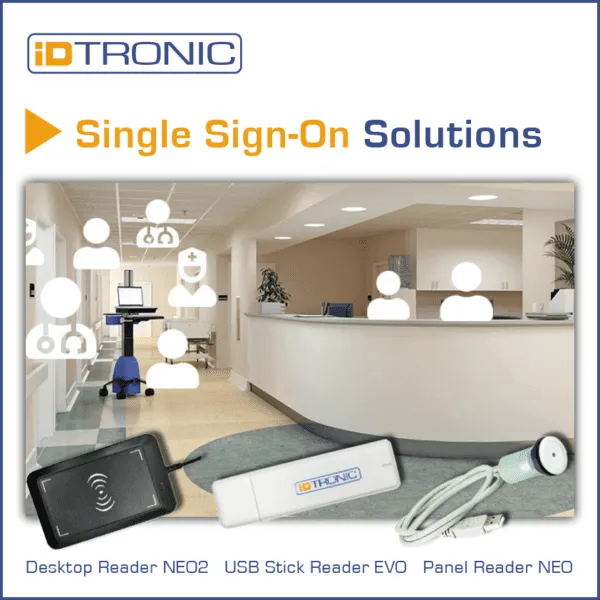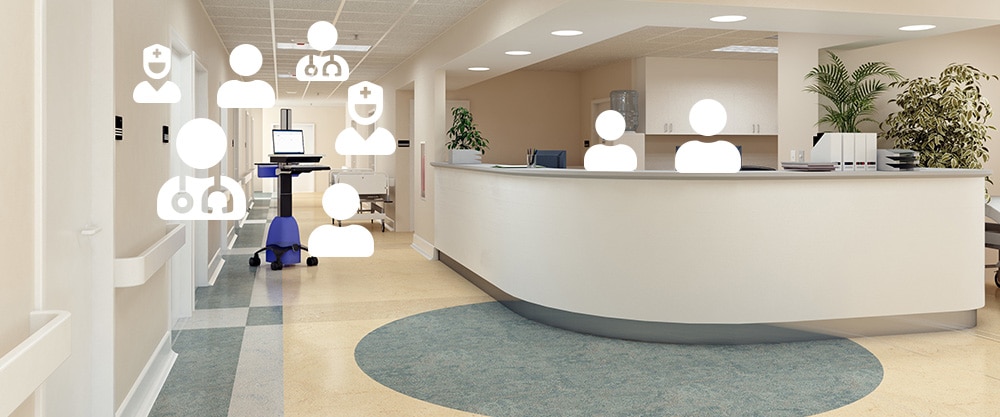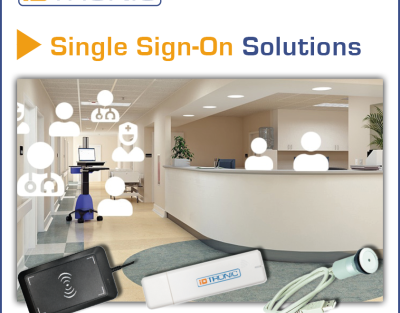Streamlining Two Technologies for Enhanced Security and Efficiency

RFID Technology
RFID technology utilizes radio waves for communication between a tag and a reader. Tags, which can be passive or active, contain unique identifiers that can be read wirelessly. RFID finds applications in asset tracking, inventory management, and access control.
The Components
- RFID Tags: Contain unique identifiers and can be attached to objects or embedded in cards.
- RFID Readers: Devices that send and receive signals to communicate with RFID tags.
- Middleware: Connects RFID hardware to existing IT infrastructure.
- Database: Stores and manages information associated with RFID tags.
RFID in Access Control:
- Secure physical access with RFID-enabled cards or badges.
- Real-time tracking and monitoring of user movements.
Single Sign-On Solutions
Single Sign-On (SSO) enables users to access multiple applications with a single set of credentials. Users authenticate once and gain access to all authorized systems without the need to log in separately for each.
The Benefits
- Enhanced Security: Reduces the risk of password-related vulnerabilities.
- User Convenience: Simplifies the login process and improves user experience.
- Productivity: Saves time and effort associated with managing multiple passwords.
- Compliance: Facilitates adherence to security and privacy regulations.
Integration of RFID and SSO
While RFID and SSO each offer significant benefits on their own, their true potential is realized when they are integrated into a cohesive system. This synergy creates a comprehensive solution that combines user identification, data security, and efficient access management. The advantages, challenges and best practice of implementing such a RFID/SSO solution are concisely listed below.
Advantages
- Multi-Factor Authentication: Combines RFID card authentication with SSO credentials for enhanced security.
- Seamless Access: RFID cards serve as physical tokens for authentication, complementing digital credentials.
- User Tracking: RFID logs can be integrated with SSO logs for comprehensive user activity monitoring.
- Scalability: Adaptable to various industries, including healthcare, finance, and manufacturing.
Challenges
Privacy Concerns
- Addressing potential privacy issues related to tracking physical movements.
- Ensuring compliance with data protection regulations.
Technical Compatibility
- Ensuring RFID and SSO systems are compatible.
- Integration with existing infrastructure and applications.
Best Practices
Security Measures
- Implement strong encryption for RFID data and SSO credentials.
- Regularly update access control policies and user permissions.
User Training and Awareness:
- Educate users on the benefits and proper use of the integrated system.
- Conduct training sessions to mitigate potential security risks.
Case Study: Healthcare Clinics & Hospitals

About
In the fast-paced world of healthcare, efficiency and security are paramount. Timely access to patient information, coupled with robust data protection, can mean the difference between life and death. A medium-sized German hospital with around 1,000 employees and 450 beds, took the initiative to integrate a RFID-SSO System with the support of the vendors iDTRONIC (RFID hardware) and digitronic computersysteme (SSO Software).
The Challenge
The hospital’s emergency ward experienced challenges in ensuring data protection compliance at their various open PC workstations. On the one hand, healthcare staff require fast access to patient information in order to provide efficient care, on the other, patient data is sensitive information and should only be viewed by authorized personnel.
The Scope
Initially, the project scope was limited to the PC workstations of the emergency ward; however, the solution needed to be easily scalable to accommodate other wards and affiliated clinics. The SSO solution needed to be capitable with the hospital’s Citrix-based IT infrastructure.
The Solution
A 2-factor authentication solution, comprising of RFID hardware (employee badges and embedded RFID readers) and Single-Sign-On Software (SmartLogon™), was implemented and seamlessly integrated into the hospital IT infrastructure ensuring quick authentication and controlled access to information at the workstations. Healthcare staff received employee badges with integrated RFID chips, which can be easily scanned on the PC monitors with iDTRONIC Embedded M890 HF/NFC Modules built in. After the first factor of authentication, the employee is prompted to enter a short PIN of their choice and then access is granted according to their user profile. The station PCs are logged out or locked automatically when removing the badge or leaving the workstation.

A combined RFID / SSO solution allows healthcare staff to log in once and gain access to multiple systems and applications without having to enter long complicated credentials repeatedly. This not only streamlines workflow but also ensures that access is granted only to authorized personnel. On average this means a time savings of ≥5 seconds per user session, leaving more time to care for patients while complying with data protection requirements.
Recommendations for Implementation
- Conduct a thorough assessment of organizational needs and existing infrastructure.
- Collaborate with experienced vendors for RFID (iDTRONIC) and SSO solutions (digitronic computersysteme).
- Develop a comprehensive training program for users.
- Implement a phased approach to deployment for minimal disruption.
- Regularly update and monitor the integrated system for optimal performance.
The integration of RFID technology with Single Sign-On solutions offers a powerful approach to authentication, enhancing both physical and digital access control. By understanding the advantages, addressing challenges, and following best practices, organizations can implement a secure and efficient system that aligns with modern security requirements.
Contact us for further information about products
Product enquiries
Mr Andreas Jäger
Tel.: +49 621 6690094-6
E-Mail: andreas.jaeger@idtronic.de

